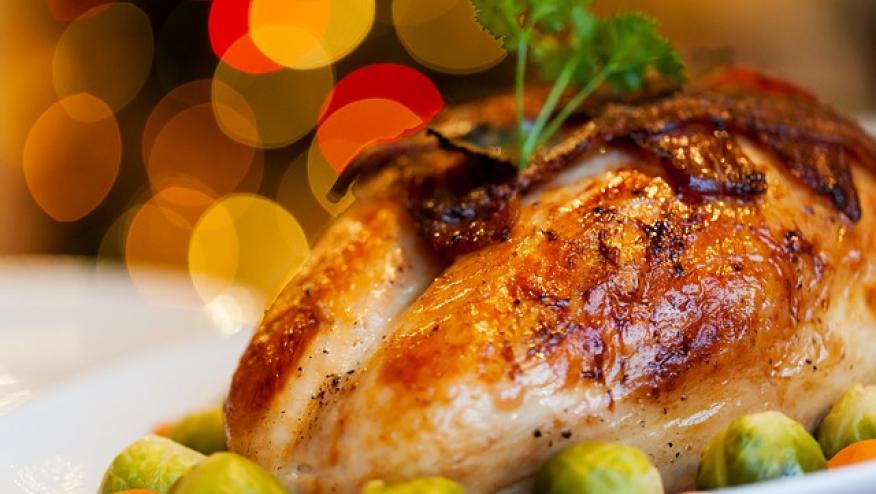Don't Blame the L-Tryptophan and Turkey Save

The harvest holiday is upon us and many will huddle around the television to enjoy their post-turkey coma; only to awaken and see the highlights of the football they intended to watch.
An article in Science Daily quotes experts at Loyola University on this matter.
"Turkey doesn't make you sleepy; eating very large quantities of turkey, stuffing, potatoes and pie makes you sleepy," says Kim Sasso, a registered and licensed dietitian at Loyola University Health System. "Turkey does contain tryptophan, but so do yogurt, eggs, fish, cheese and other meats."
Soybeans, she says, actually contain more tryptophan than turkey. "Because of transport and breakdown, not enough tryptophan will reach the brain to cause sleepiness after a holiday meal," says Sasso of the popular myth. "Likely, the stressful hustle and bustle of the holiday, travel schedules, alcohol indulgence and cooking tasks will contribute more to fatigue than a few slices of turkey."
Here are Sasso's top tips for navigating the bounty of food at Thanksgiving:
• Don't skip meals. "Eat breakfast and lunch so you avoid overeating during the traditional Thanksgiving dinner," says Sasso. "If you save your appetite for the big meal, you will likely eat more and experience the 'food coma' many complain about."
• Mind what you eat. "Focus on eating your favorite once-a-year holiday foods and pass on other everyday dishes," says Sasso. "Don't eat your weight in appetizers if you really are looking forward to the main meal."
• Quality not quantity. "Three slices of dessert will not taste as good or be as appreciated as three small sampling portions," she says. "Or, skip the crust when eating pie or the big dollop of ice cream or whipped topping to save calories."
• Load up on vegetables and fruits. "Produce is loaded with vitamins and minerals, and you will benefit from the fiber," says Sasso. "Eating vegetables doused in cream sauce and butter is better than not eating any at all."










If you are a health practitioner, you may Login/Register to comment.
Due to the nature of these comment forums, only health practitioners are allowed to comment at this time.